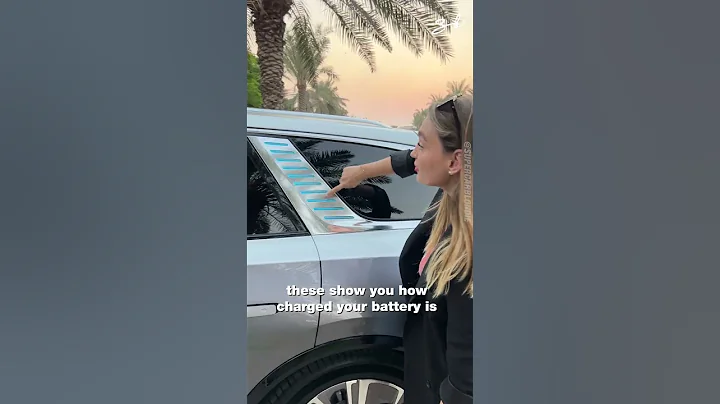Recently, according to 36 Krypton reports, OPPO Group has also been preparing for car manufacturing. The company's CEO Chen Mingyong has met with Zhu Wei, president of CATL's China Passenger Vehicle Division in the past two weeks, and also led a team to visit China Automotive Research Institute and other institutions. The reason why

uses "also" is because at the conference of a friend businessman next door at the end of March, Xiaomi founder Lei Jun announced that Xiaomi would invest 10 billion yuan in the first phase to enter the field of car manufacturing, and Huawei also started from software and hardware. Wait for the system level to cut into the car track. As another new player in the mobile phone industry who is about to build a car, OPPO's rapid follow-up is unexpected, but reasonable.
Although it is a well-known mobile phone brand, according to IDC data, in the global mobile phone shipment rankings in 2020, OPPO dropped out of the top five and became "other". At the same time, OPPO’s transition to high-end is not smooth. IDC data shows that in the first half of 2020, in the price segment above US$600 in China, OPPO only accounted for 2.6% of the market share, and there is a huge gap between Apple and Huawei’s share of more than 40%.

In the IoT field, which mobile phone brands are all preempting, in early 2019, OPPO established a special department and announced its entry into the IoT business. In contrast, Xiaomi and Huawei have long proposed the "1+X+N" strategy centered on mobile phones, and launched various types of smart hardware to seize market space. Under the competition, OPPO has also lost the best development period of the IoT business.
It can be said that if we continue to go down the road of mobile phones, OPPO's competitiveness will be stretched. Perhaps in order not to make strategic mistakes in business, this time they chose to follow the trend and join the car-making army with Huawei and Xiaomi.
This time OPPO is faster and more determined.

last year invested in Shanghai Zongmu Technology, which is a autonomous driving technology company, and has now entered the stage of investment agreement. In addition, OPPO also communicated with the SOA architecture project of SAIC Group Parts and Components Company, hoping that the camera anti-shake technology of mobile phones will be applied in car cockpit photography and face recognition. In addition, OPPO has also communicated with ideal car , hoping to introduce its mobile phone bluetooth key.
In terms of related talents, OPPO has recruited Wu Heng, a software engineer in autonomous driving and algorithms, as the vice president of the software department. At the same time, Guo Yandong, who previously worked in Xiaopeng Motors , has also joined the OPPO team as the chief scientist.

As far as patent is concerned, OPPO's current patents already involve autonomous driving, intelligent networking, communication, perception, artificial intelligence and so on. In addition, four patents applied by OPPO not long ago, including "anti-collision reminder", " vehicle control", "vehicle positioning", and "ranging method", were also exposed.
But can we believe that these "halfway in" companies can eventually build a smart car ? Or can we really realize the marketization of automobiles? In fact, it is still difficult.
For example, as everyone can see, the problem of interlacing is like a mountain.
From the point of view of the electric vehicle itself, not to mention that the number of parts and components is much more than that of digital products such as mobile phones, the three-electric system, the core of the electric vehicle, is not enough for those without any technical accumulation and experience. For the vast majority of mobile phone manufacturers, it is undoubtedly like a blank sheet of paper.

Of course, purchasing a mature three-electrical system is also a solution, but "use doctrine" is not king after all, unless you can be excellent in other aspects, such as smart cockpit or appearance and so on. At the same time, even in the form of acquisition, electric vehicles do not only have three-electric systems, vehicle safety, vehicle ergonomics, matching between vehicle components, chassis adjustment and many other fields. These brands that started from scratch must be inferior to those traditional car companies, or even new forces that have established a firm foothold.
Of course, I also admit the advantages of OPPO itself. For example, its most is good at 's operating system, software optimization and other fields. These technologies are obviously in common with future smart cars. OPPO can extend its own technology in the automotive field through its own technological advantages, while providing corresponding technologies for smart electric vehicles.

For example, as the "king of offline " in the mobile phone field, OPPO and vivo offline outlets are all over China, covering China from the first and second tiers to the fifth and sixth tiers and even more remote areas. In terms of channels and price control, OPPO has always Its own unique set of play, once the layout of the automotive field, then OPPO will have a lot of advantages in offline channels.
But all in all, the automobile industry is extremely complex, and wanting to do it and doing it well are two concepts. Only enough professionals can provide high-quality products for the market and consumers. In the midst of the great changes, OPPO has a very difficult road to go, rushing into the field of car building where it is not good at or even inexperienced.
As an automotive media person, I am happy to see more powerful brands and the power of the new generation enter the market, muddy the water, stir up the water, and push the automotive industry to another level. I only hope that these latecomers, Not sharing for the sake of sharing.











